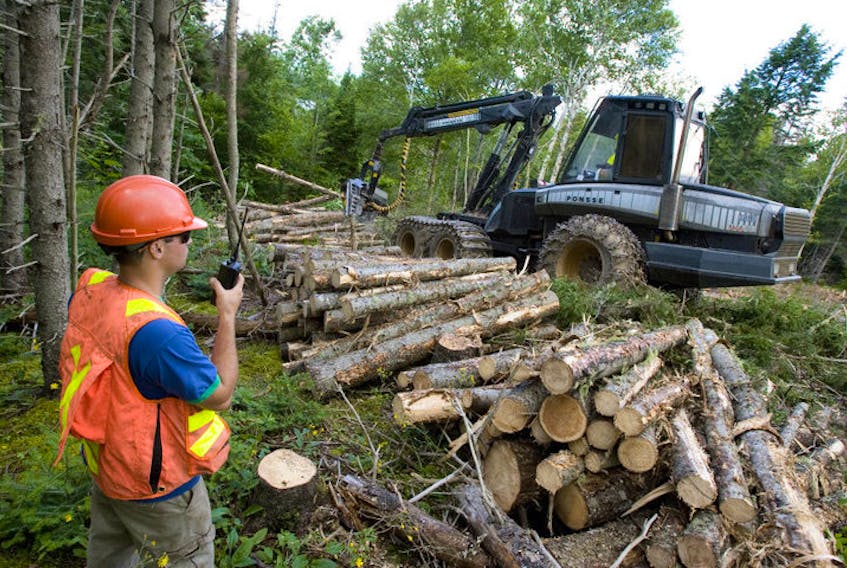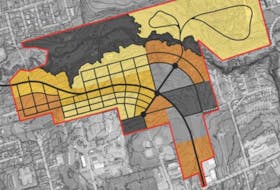SYDNEY, N.S. — Nearly a year after Northern Pulp mill’s closure, some wood suppliers are feeling nervous about the future.
“The pulp industry, from what I can gather, anyway … I guess the best way we can explain it is it’s sort of steady,” said Brent MacInnis, president of lumber supplier Hugh MacInnis Lumber Ltd., adding there haven’t been any cutbacks in wood supply going to the pulp mill, however, there also isn’t an abundance of demand.
Hugh MacInnis Lumber supplies product to Port Hawkesbury Paper in Point Tupper and was also a part-time supplier to Northern Pulp in Pictou County before it closed on Jan. 31, 2020. They’ve been able to hang on to their market through PHP, though the lack of competition now is concerning for the future.
“Competition is good for everybody. … The demand could be a little bit higher,” MacInnis said, adding their location in Frenchvale makes it difficult as well because many don’t want to pay the transportation costs associated with their product.
“[Being] located down here … you’re so far away from any other markets that the transportation costs would be so high. Nobody really wants to pay that.”
Their work slowed down at the onset of the pandemic, but they’ve been able to maintain their workforce at a steady level for now.
“When you’re going to sell to one company, you sell for what they want to pay or you don’t sell at all. So that makes it tough, but fortunately … we’ve been going relatively steady with Port Hawkesbury Paper. But again, with only one market, if something happens to that mill, we’ve got literally nowhere to sell our product. That’s the scary part.”
MB Pulp Ltd., which stands for Marion Bridge Pulp, initially lost 54 per cent of its sales when Northern Pulp closed last January. That was roughly half-a-million dollars a year, said owner and contractor Russell Huntington.
“We happen to be able to ship to the other mill, so we were lucky,” Huntington said.
Others, though, weren’t as fortunate. Port Hawkesbury Paper wasn’t buying the wood from suppliers it didn’t already work with.
Port Hawkesbury Paper gave MB Pulp a quota, which helped them weather Northern Pulp’s shutdown. They did have to do rotating layoffs beginning last January, but those have since stopped.
“My concerns are great. We’re getting less for the wood right now than we did in 1980.”
Huntington hopes to see Northern Pulp open again, which might help bring the price of wood back up.
“I think they want to open, as far as I know, but whether (Premier Stephen) McNeil will ever let them open or not, I don’t know.”
Jessica Smith is a reporter with the Cape Breton Post.









